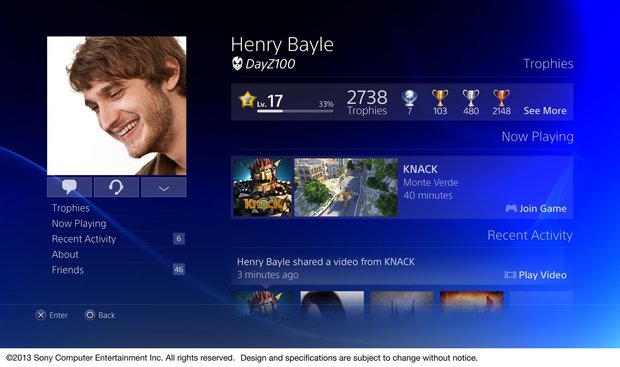Sony updates PS4's terms of service to remove your privacy (j/k, you never had any)
Sony is just days away from launching a new console in the US, and fans are currently hyped enough that they’ll get excited over corporate legalese on the system’s capabilities. That includes posting FAQs and this terms of service that (boringly) clarifies certain things about the PlayStation 4. After they read through what does and doesn’t define a PS4 game, some people online are bothered by a section concerning Sony’s ability to ”monitor and record” PSN communications, which includes voice chat and video messages. It may feel like an invasion of privacy, but it’s also the reality you’ve been living with on the PlayStation 3, Vita, 360, Xbox One, and pretty much everything else that uses the internet.

Take a look back at the user agreement for both the Vita and the PS3 and you'll see they all detail Sony’s right to monitor messages on PSN, and that’s continuing with the PS4. When terms of service says “[W]e reserve the right in our sole discretion to monitor and record any or all of your PSN activity,” that’s merely the company making more clear the online policy that’s been in place all along.
Shocked that a game company would do something like this? Well, if you're planning on playing a next-gen console, you're going to have to get used to it. Here’s Xbox One’s eerily similar to the statement on the service: “You should not expect any level of privacy concerning your use of the live communication features (for example, voice chat, video and communications in live-hosted gameplay sessions) offered through the Xbox Live/Games for Windows-Live service.” Both are acknowledging the realities of 2013, a time when governments (or companies) can do basically whatever they want in the name of security.

On a certain level, it’d be irresponsible if Sony was completely hands off with its service, at the very least from a customer service standpoint. The company needs the ability to ban problem players and investigate network security risks if it wants any type of online gaming for the PS4. I’m not sure what our personal voice chat has to with that, but apparently Sony feels it’d rather have that avenue for investigation than not.
Companies like Sony and Microsoft spent millions (if not billions) to create online services that have grown very sophisticated over the past decade. By inviting so many people onto their services, they need some level of quality control to keep it running smoothly. And even with all that money, do you seriously think Sony or Microsoft has the resources to catch the major problems that occur, let alone listen to every single person online?
I hate the idea of lost privacy as much as the next gamer, and as a consumer we all have the choice to keep our PS4s offline past the first registration, so feel free to opt out. But if you have Twitter, Facebook, tumblr, Instagram, or any similar service, I don’t really see the point in staying away. Social media is all about making your private life public in far more invasive ways than PSN can. And then there’s the countless ways agencies like the NSA and closed circuit cameras worldwide have the ability to watch everything you do. The current state of the internet strangled personal privacy years ago, and Sony is being more open than most about the reality of those security procedures.

Accepting said reality isn’t meant to give Microsoft or Sony future forgiveness on any potential/inevitable misuse of its access to your messages, but lets deal with that when it happens. As it stands, they’re is just part of the new standard of online privacy--or lack there of. If you don’t want to be a part of that, your next-gen consoles are just the beginning of the hundreds of ways you’ll need to avoid modern society.
Weekly digests, tales from the communities you love, and more
Henry Gilbert is a former GamesRadar+ Editor, having spent seven years at the site helping to navigate our readers through the PS3 and Xbox 360 generation. Henry is now following another passion of his besides video games, working as the producer and podcast cohost of the popular Talking Simpsons and What a Cartoon podcasts.



